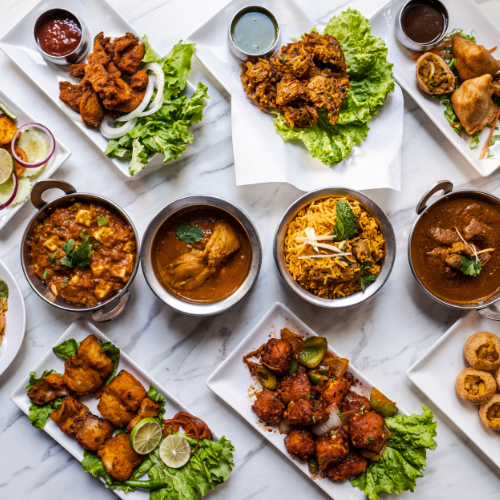Starting a food business is a rewarding but complex endeavor. Whether you're opening a restaurant, food truck, catering service, or any other food-related venture, here are important factors to consider:

-
Business Concept and Niche:
- Define your unique selling proposition (USP) and the specific niche or cuisine you'll focus on.
- Understand your target audience and tailor your menu and concept to their preferences.
-
Market Research:
- Conduct thorough market research to assess demand for your food concept.
- Study your competitors, identify gaps in the market, and determine pricing strategies.
-
Business Plan:
- Create a comprehensive business plan outlining your goals, financial projections, marketing strategies, and operational plans.
- Include a detailed budget covering startup costs and ongoing expenses.
-
Legal Structure and Permits:
- Choose a legal structure for your food business, such as a sole proprietorship, LLC, or corporation.
- Obtain the necessary permits and licenses, including health permits, food handler's permits, and zoning approvals.
-
Location:
- Select a strategic location with high foot traffic or visibility if you're opening a physical storefront.
- Ensure the location complies with zoning regulations and meets health and safety standards.
-
Menu Development:
- Create a menu that balances your unique offerings with customer preferences.
- Consider dietary trends and accommodate various dietary restrictions.
-
Suppliers and Sourcing:
- Establish relationships with reliable food suppliers and distributors.
- Source high-quality ingredients while managing costs effectively.
-
Kitchen and Equipment:
- Invest in the necessary kitchen equipment and appliances to efficiently prepare and serve food.
- Maintain proper food storage and handling protocols to meet health and safety standards.
-
Staffing and Training:
- Hire skilled kitchen staff, servers, and support personnel as needed.
- Provide training in food safety, customer service, and restaurant operations.
-
Health and Safety Compliance:
- Adhere to food safety and hygiene regulations, including proper food storage, handling, and temperature control.
- Implement health and safety protocols for employees and customers.
-
Menu Pricing and Cost Control:
- Set competitive and profitable menu prices while controlling food and labor costs.
- Regularly review and adjust pricing to maintain profitability.
-
Marketing and Branding:
- Develop a strong brand identity and marketing strategy to attract customers.
- Utilize both online and offline marketing channels, including social media, local advertising, and partnerships.
-
Customer Experience:
- Focus on delivering exceptional customer service and an enjoyable dining experience.
- Encourage customer feedback and address any concerns promptly.
-
Sustainability and Ethical Practices:
- Consider sustainable sourcing practices, waste reduction, and eco-friendly packaging options.
- Communicate your commitment to sustainability to attract environmentally conscious customers.
-
Financial Management:
- Implement an accounting system to track revenue, expenses, and profits.
- Budget for operational costs, including rent, utilities, and employee wages.
-
Insurance:
- Obtain appropriate insurance coverage, including liability insurance, to protect your business in case of accidents or legal issues.
-
Compliance with Regulations:
- Stay updated on food safety regulations, labor laws, and tax requirements relevant to your business.
- Comply with local, state, and federal regulations.
-
Scalability and Growth:
- Plan for potential expansion or growth opportunities as your business succeeds.
- Explore options for multiple locations or new revenue streams.
Starting a food business requires careful planning, attention to detail, and a passion for providing quality cuisine. Seek advice from industry experts, join local food associations, and consider working with mentors who can provide guidance and support as you embark on your culinary journey.









